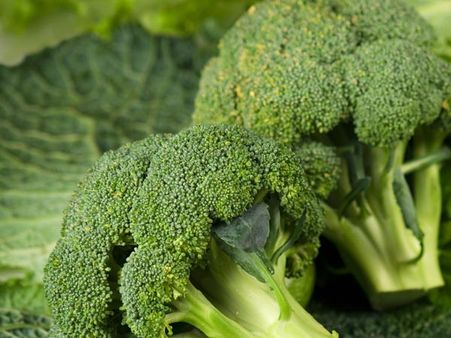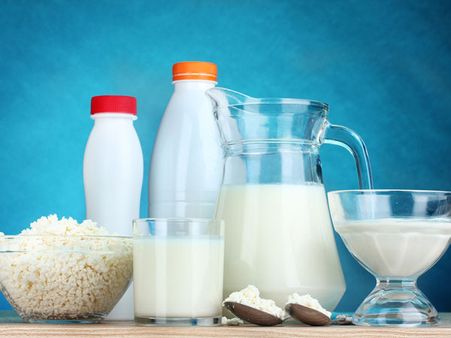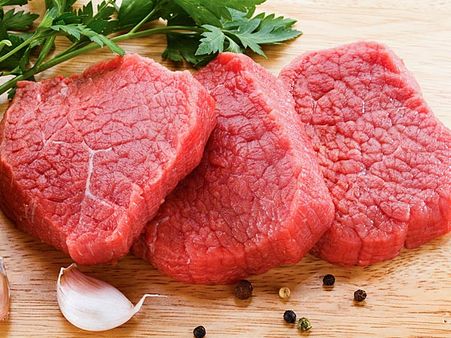Just In
- 8 min ago

- 3 hrs ago

- 4 hrs ago

- 9 hrs ago

Don't Miss
- Finance
 Results, Dividend, Fundraise On April24: Buy Top Bank Stock Amid Rich Valuation, TP Rs 1400: Nomura
Results, Dividend, Fundraise On April24: Buy Top Bank Stock Amid Rich Valuation, TP Rs 1400: Nomura - Sports
 Who Won Yesterday's IPL Match 33? PBKS vs MI, IPL 2024 on April 17: Mumbai Indians Escape Last-Ditched Fight by Punjab Kings To Win
Who Won Yesterday's IPL Match 33? PBKS vs MI, IPL 2024 on April 17: Mumbai Indians Escape Last-Ditched Fight by Punjab Kings To Win - Movies
 Do Aur Do Pyaar OTT Release Date & Platform: When & Where To Watch Vidya Balan’s Film After Theatrical Run?
Do Aur Do Pyaar OTT Release Date & Platform: When & Where To Watch Vidya Balan’s Film After Theatrical Run? - News
 BRS Chief K Chandrasekhar Rao Slams BJP, Says K Kavitha's Arrest Is Vendetta Politics
BRS Chief K Chandrasekhar Rao Slams BJP, Says K Kavitha's Arrest Is Vendetta Politics - Automobiles
 Aprilia RS 457 Accessories: A Detailed Look At The Prices
Aprilia RS 457 Accessories: A Detailed Look At The Prices - Education
 Karnataka SSLC Result 2024 Soon, Know How to Check Through Website, SMS and Digilocker
Karnataka SSLC Result 2024 Soon, Know How to Check Through Website, SMS and Digilocker - Technology
 Nothing Ear, Ear a With ANC, Up to 42.5 Hours of Battery Launched; Check Price and Availability
Nothing Ear, Ear a With ANC, Up to 42.5 Hours of Battery Launched; Check Price and Availability - Travel
Telangana's Waterfall: A Serene Escape Into Nature's Marvels
World Hemophilia Day : Useful Tips For Hemophilia Survivors
There are quite a number of afflictions that affect humans in varying degrees of seriousness.
Many of the disorders come with a known cure and are easily treatable, whereas others are not curable, but their symptoms could be controlled.
Curable or not, a disease is a disease and it hampers a person's life to a great extent.
Haemophilia is one such genetic condition that is very serious. This is a blood-related disorder, in which the blood cells lose their ability to clot, resulting in excessive bleeding and thinning of the blood.
Unfortunately, there is no cure for this disorder, but with healthy lifestyle changes and precaution, its symptoms can be treated effectively.
Some of the symptoms of Haemophilia include excessive bleeding, internal bleeding, patient getting bruised easily, nose bleeds, swollen joints, wounds that do not heal normally, etc.
Haemophilia is a serious disorder that requires medical attention. The treatment for this genetic disorder includes platelets infusion through regular blood transfusions, oral medications that aid in normal blood clotting, medications to control bleeding, etc.
On the occasion of the World Haemophilia Day (April 17th), let us see how Haemophilia survivors can improve the quality of their lives by following certain tips.

Tip 1:
A patient suffering from Haemophilia must maintain a healthy body weight, as it helps him/her to remain healthier and reduce the risk of other diseases, which may complicate matters further. Being overweight or underweight is not advisable.

Tip 2:
Maintain a fitness routine, which ranges from light to moderate, after consulting with your physician about it. Indulging in intense physical workouts may not be a good idea, as the risk of getting bruised or wounded is much higher.

Tip 3:
Avoid foods that are high in saturated fats and calories, as they take longer to digest and use up a lot of energy and lead to digestive problems. It is essential for the patients to remain energised as much as possible.

Tip 4:
Try to consume foods that are rich in vitamin K, as this vitamin is rich in a chemical called prothrombin, which aids in the normal blood clotting functionality. Foods like spinach, oats, broccoli, soybeans, whole wheat bread, etc, are known to be packed with vitamin K.

Tip 5:
Doctors advice Haemophilia survivors to consume foods that are rich in calcium, or take calcium supplements, as calcium is known to aid in the platelet formation and blood clotting, along with strengthening the bones. Dairy products, soy milk, etc, can be made a part of the patient's diet.

Tip 6:
Foods rich in vitamin C can also be added to the diet, as vitamin C helps in making the immune system more strong, thereby making the patient less susceptible to other diseases like common cold, flu, allergies, etc, which may aggravate Haemophilia symptoms. Fruits such as orange, pineapple, strawberries, grapes, etc, are rich in vitamin C.

Tip 7:
Another important nutrient that can be made a crucial part of the patient's diet is iron. Iron is the main element that promotes the production of healthy red blood cells and haemoglobin, which is necessary to treat blood disorders. Meat, fish, legumes, nuts, etc, are rich in iron content.

Tip 8:
Maintain an 'Infusion Log', in which the patient records the time and date of the last blood/platelet infusion, so that it becomes easier for him/her to plan the next one. A note on the amount of blood transferred, medications taken, etc, can also be included.

Tip 9:
Make sure that the patient does not have to deal with the disorder alone. The support of friends and family members is important during such times. The patients could be prone to depression, so it is crucial to make them feel loved.
-
 healthExclusive: Expert Shares Impact of Heat Waves on Infectious Disease Transmission
healthExclusive: Expert Shares Impact of Heat Waves on Infectious Disease Transmission -
 healthExclusive: Doctor Shares Why Women Should Prioritize Health, Key Resolutions For Well-being And Vitality
healthExclusive: Doctor Shares Why Women Should Prioritize Health, Key Resolutions For Well-being And Vitality -
 healthEverything You Need To Know About Deadly H5N1 Virus That Can Be 100 Times Worse That COVID-19 Pandemic
healthEverything You Need To Know About Deadly H5N1 Virus That Can Be 100 Times Worse That COVID-19 Pandemic -
 astrologyWorld Health Day 2024: Holistic Health Tips For 12 Zodiac Signs As Per Astrology
astrologyWorld Health Day 2024: Holistic Health Tips For 12 Zodiac Signs As Per Astrology -
 healthInstagram Claims Grapes Are Contaminated With Pesticides, Methods To Clean It Properly Before Consuming Them
healthInstagram Claims Grapes Are Contaminated With Pesticides, Methods To Clean It Properly Before Consuming Them -
 healthDutch Woman Opts For Euthanasia In May Not Due To Physical Illness, Know How To Build Mental Resiliance
healthDutch Woman Opts For Euthanasia In May Not Due To Physical Illness, Know How To Build Mental Resiliance -
 health20-Year-Old Man In China Suffers From Delusional Love Disorder, Know What Is Erotomania And Its Signs
health20-Year-Old Man In China Suffers From Delusional Love Disorder, Know What Is Erotomania And Its Signs -
 healthExclusive: On World Autism Day 2024, Let Us Empower Parents With Positive Strategies For Autism Care
healthExclusive: On World Autism Day 2024, Let Us Empower Parents With Positive Strategies For Autism Care -
 health10 Year Old Girl Dies After Eating Cake, How To Identify A Bad Cake Online, What Health Risks It Can Pose
health10 Year Old Girl Dies After Eating Cake, How To Identify A Bad Cake Online, What Health Risks It Can Pose -
 healthLove To Cuddle? These Are The 10 Amazing Health Benefits Of Cuddling Which Will Make You Want It More
healthLove To Cuddle? These Are The 10 Amazing Health Benefits Of Cuddling Which Will Make You Want It More -
 astrologyApril 2024 Health Horoscope: Know How This Month Will Affect Zodiac Signs In Terms Of Wellness
astrologyApril 2024 Health Horoscope: Know How This Month Will Affect Zodiac Signs In Terms Of Wellness -
 healthWhat Is iPhone Finger? Here's Why You Need To Worry About Its Negative Effects
healthWhat Is iPhone Finger? Here's Why You Need To Worry About Its Negative Effects


 Click it and Unblock the Notifications
Click it and Unblock the Notifications



